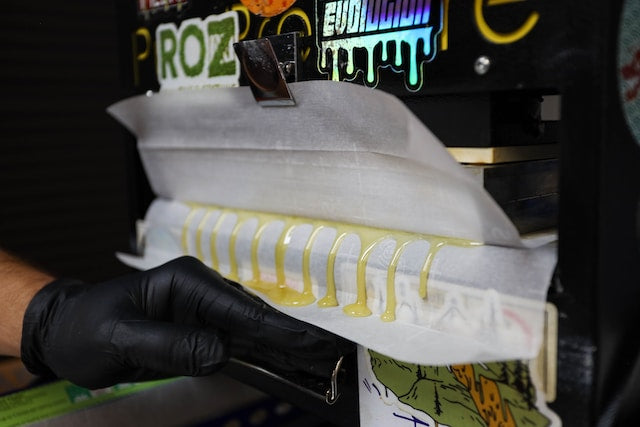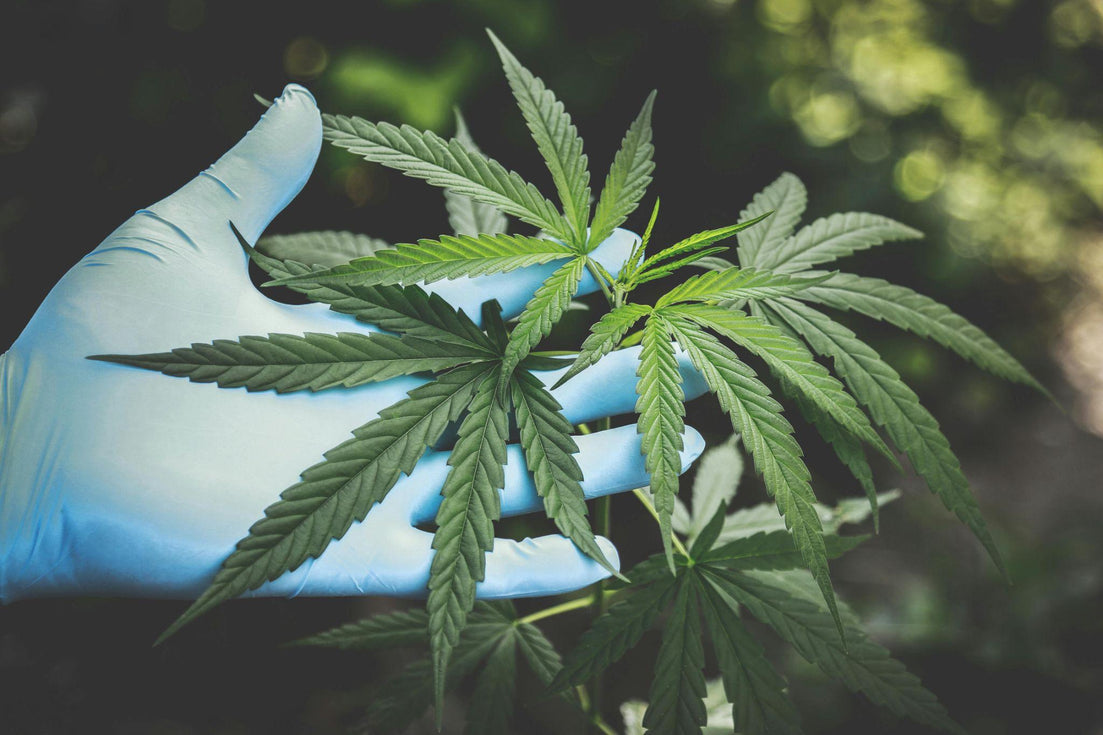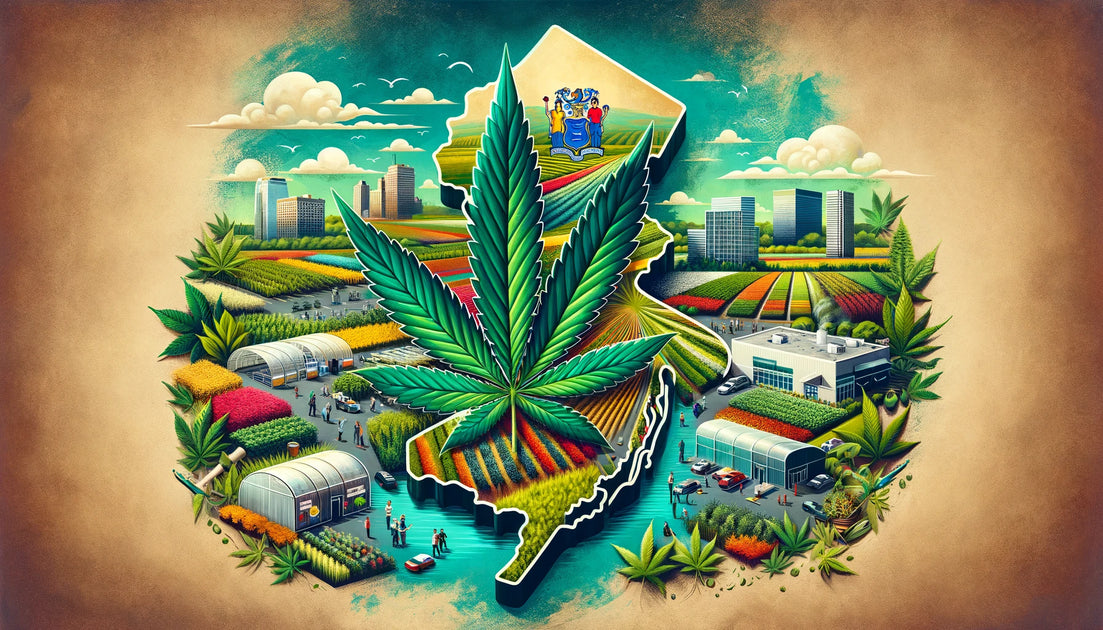Your cart is currently empty.

As we delve into the intriguing world of "Rosin Vs Resin," it's essential to understand these two distinct cannabis concentrates. Their production processes, terpene profiles, and overall user experience significantly differ.
In this blog post, you'll gain a comprehensive understanding of solventless extraction methods that produce live rosin and create live resin. We'll explore how preserving terpenes in cannabis contributes to their unique properties and benefits.
You will also learn about the main difference between rosin and resin - from their production process comparison to variation in terpene profiles. As we unpack what is rosin, you'll discover how homemade roisin is produced and why many choose rosins over other concentrates.
We will further delve into the popularity of live rosin; including tips on making them at home and comparing textures with regular rosins. Finally, our exploration wouldn't be complete without examining what constitutes live resin products in detail.
Understanding Rosin and Resin as Solventless Extracts
Cannabis concentrates are like superheroes - potent and versatile. Rosin and resin are the Batman and Robin of the cannabis world, standing out for being solventless extracts. No solvents, no problem.
Exploring Solventless Extraction Methods
Solventless extraction is like a hot hug - heat and pressure are applied to the cannabis plant material to extract its potent compounds such as cannabinoids and terpenes. This method results in a pure product that retains the natural flavor profile of the plant while also optimizing for its synergistic effects.
The absence of solvents makes these extracts more natural compared to others. It eliminates potential residual chemicals which could be harmful if consumed or inhaled. Plus, it's an environmentally friendly option since there's no waste produced from chemical runoff unlike traditional solvent-based extractions.
Benefits of Preserving Terpenes in Cannabis
Terpenes are like the spice of life when it comes to experiencing cannabis at its best. They contribute not only towards aroma and flavor but also influence how cannabinoids interact with our body's endocannabinoid system - something often referred to as 'the entourage effect'.
- Aroma & Flavor: Each strain has unique aromatic compounds giving them distinct flavors ranging from fruity sweetness to earthy muskiness.
- The Entourage Effect: When combined with cannabinoids (like THC), terpenes can enhance or alter their effects - potentially making you feel relaxed, euphoric or focused depending on terpene-cannabinoid synergy.
Rosin and resin both retain this full spectrum plant profile during production ensuring users get most out of each puff whether it's pain relief, anxiety reduction or sleep aid they're after.
Differentiating Between Rosin and Resin
While both rosin and resin are popular forms of cannabis concentrate, they have several differences due to their unique production processes. Rosin is made with marijuana flower or kief through heat pressure transforming it into hash oil ready for consumption whereas resin resembles a hash-like substance which retains its terpene profile during creation.
Production Process Comparison: Rosin vs Resin
Rosins are created by applying heat and pressure to cannabis flowers or kief, causing the plant's trichomes to burst and release their oils. This method doesn't require any solvents, making it an appealing option for those seeking natural alternatives. In contrast, resins involve flash freezing fresh cannabis plants immediately after harvest before extracting cannabinoids using hydrocarbon solvents such as butane or propane under high pressure within a closed-loop system. Despite employing solvents in this extraction process unlike rosins, these are removed afterwards leaving behind pure cannabinoid concentrates packed with flavor from preserved terpenes.
Variation in Terpene Profiles
Rosins tend to maintain most of the original strain's flavor because no chemical solvents are used that could potentially alter its taste profile during extraction. However, since only dried buds typically undergo this process, some aromatic compounds might be lost compared to live versions extracted from freshly harvested plants. On the other hand, resins use solvent-based extractions, which could theoretically affect flavors too. However, because these start off with flash-frozen fresh buds retaining more volatile compounds responsible for aroma, they often end up having richer tastes than even live rosins.
-
Rosin:
- Made via heat & pressure on dry buds/kief without using any solvents, hence preserving the majority of original flavors albeit slightly less intense compared to 'live' versions.
- Easier DIY at home, hence cheaper.
-
Resin:
- Made via closed-loop extraction involving hydrocarbon solvents on flash-frozen fresh buds, hence preserving maximum possible flavors despite being more complex and expensive.
- Potentially higher THC content due to inclusion of all parts, including stems and leaves, besides just flowers alone like in the case of rosins.
Rosin and resin are two popular forms of cannabis concentrate with different production processes. Rosin is made by applying heat and pressure to marijuana flower or kief, while resin involves flash freezing fresh cannabis plants before extracting cannabinoids using hydrocarbon solvents like butane or propane under high pressure in a closed-loop system. While rosins preserve most of the original strain's flavor due to no chemical solvents being used, resins retain more volatile compounds responsible for aroma from flash-frozen fresh buds resulting in richer tastes despite solvent-based extractions.
What's the Deal with Rosin?
Rosin has quickly become the go-to concentrate for cannabis enthusiasts due to its solventless properties, ease of production, and potency. It's solventless, easy to make, and packs a punch. No wonder it's gaining popularity.
How to Make Rosin at Home
All you need is a rosin press, some parchment paper, and your favorite cannabis material. Apply heat and pressure, and voila. You've got yourself some homemade rosin. Just be careful with the temperature, or you might end up with a dud.
Why Choose Rosin Over Other Concentrates?
- All-Natural: No solvents means no nasty chemicals to worry about.
- Potent: Rosin retains most of the original cannabinoids, making it a powerful option for managing symptoms.
- Tasty: No solvents also means more natural flavors from terpenes, resulting in a richer taste.
Rosin is a safe and easy way to get into DIY cannabis extractions. For those not looking to venture out, pre-made products are available both online and in dispensaries. Just remember to consume responsibly.
What's the Buzz About Live Rosin?
Live rosins are the new kid on the block. They're made from fresh frozen flowers instead of dried ones, resulting in even more flavor. It's like a party in your mouth.
Live Rosin: The Freshest Way to Get High
Live rosin is the new kid on the block, and it's quickly becoming the coolest concentrate around. Why? Because it's made from fresh, uncured cannabis flowers, which means it's bursting with flavor and potency.
Making Live Rosin at Home: It's Easier Than You Think
All you need to make live rosin at home is some parchment paper, a heat press machine (or hair straightener), a collection tool, and some fresh or flash-frozen cannabis flowers. Check out this comprehensive guide to discover how you can craft your own batch of the scrumptious concentrate with ease.
Live Rosin vs. Regular Rosin: What's the Difference?
The main difference between live rosin and regular rosin is the moisture content of the starting material. Live rosin is made from fresh, uncured flowers, which means it has a higher moisture content than regular rosin, which is made from dried flowers. This gives live rosin a sappier texture and a more complex flavor profile.
But that's not all - live rosin is also more potent than regular rosin, making it a favorite among cannabis connoisseurs. As a result, it's an ideal option for novice users of concentrates who want to enjoy the full flavor and potency that live rosin has to offer.
Why You Should Try Live Rosin Today
Live rosin is the freshest way to get high, and it's packed with flavor and potency. Experience the versatility of live rosin - dabbing, vaping or incorporating it into edibles for a flavourful and potent high. So why not give it a try and see what all the fuss is about?
Live Resin: The Champagne of Cannabis Concentrates
Live resin is a potent and flavorful cannabis concentrate made by flash freezing the plant material after harvest. This unique process preserves terpenes and isolates THC, resulting in a superior end product.
The Extraction Process
Live resin is created using closed-loop extraction, which uses hydrocarbon solvents like butane or propane to extract THC and other cannabinoids. The low temperatures used in the process help preserve terpenes, which enhance both flavor and therapeutic benefits.
Distinguishing Features
Live resins stand out for their high THC content and full-spectrum cannabinoid profile. They also offer unique taste and aroma profiles thanks to the abundance of naturally occurring terpenes.
Potency Levels
- THC: Live resins often boast higher concentrations of THC than other cannabis products.
- Cannabinoids: Live resins contain diverse cannabinoids, including CBD, CBG, and CBN.
Taste & Aroma Profiles
Live resins offer a wide range of flavors and aromas thanks to the abundance of terpenes. These aromatic compounds also contribute to the entourage effect, enhancing the overall experience.
FAQs in Relation to Rosin vs Resin
What's the difference between rosin and resin?
Rosin is extracted without solvents, while resin is extracted using solvents like butane or CO2.
Is rosin or resin better for you?
Both have their pros and cons, but it ultimately depends on personal preference and intended use.
Can you get in trouble for using cannabis?
Yes, any illegal activities related to cannabis use can result in legal consequences.
What are the risks of using cannabis?
While cannabis has potential medical benefits, it's important to note that personal experiences with using rosin or resin should not be taken as medical advice or health claims without credible sources.
How do you know if a source is credible?
Look for sources that are peer-reviewed, come from reputable institutions or experts in the field, and have been published in respected journals or publications.
What's the best way to consume cannabis?
There are many ways to consume cannabis, including smoking, vaping, edibles, and topicals - it's all about finding what works best for you.
Can you overdose on cannabis?
While it's unlikely to overdose on cannabis, consuming too much can result in unpleasant side effects like anxiety, paranoia, and nausea.
What's the difference between THC and CBD?
THC is the psychoactive compound in cannabis that produces a "high," while CBD is non-psychoactive and has potential therapeutic benefits.
Where can I learn more about cannabis?
Check out credible sources like Leafly, High Times, and the National Institute on Drug Abuse for more information.
Conclusion
Rosin vs Resin: Which One is Right for You?
Rosin and resin are both natural alternatives for managing symptoms like pain, anxiety, and insomnia, but they differ in their production process and terpene profiles.
Homemade rosin is made by applying heat and pressure to cannabis flower or hashish without using solvents, while live rosins are made from freshly frozen cannabis plants.
On the other hand, live resins are extracted from fresh-frozen whole plant material using solvents like butane or propane.
Ultimately, choosing between rosin vs resin depends on personal preference and desired effects, so try both and see which one works best for you!



